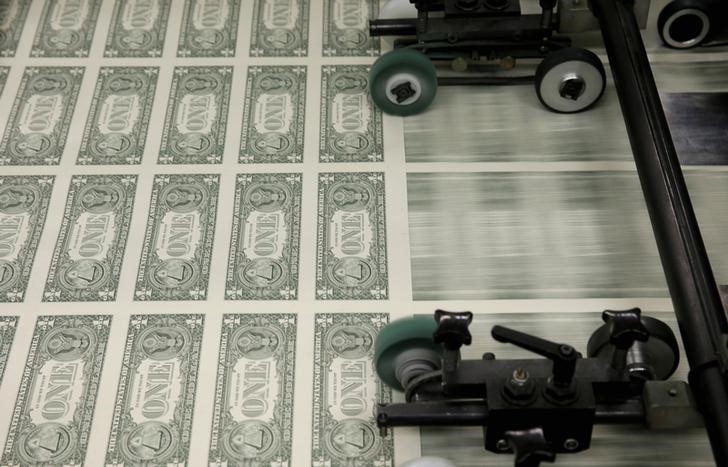Investing.com - The dollar rose to two-week highs against the other major currencies on Friday, after the release of upbeat U.S. inflation data boosted optimism over the strength of the economy.
Data showed that the U.S. consumer price index was flat in January, compared to expectations for a 0.1% downtick and after a 0.1% fall the previous month. Year-on-year, consumer prices increased by 1.4% last month.
Core CPI, which excludes food and energy, rose 0.3% in January, more than the expected 0.2% gain and after an increase of 0.2% in December.
USD/JPY was down 0.23% at 112.99.
Demand for the safe-haven yen still remained supported as oil prices resumed their downward trend on Friday, a day after the Energy Information Administration said U.S. crude inventories rose by 2.1 million barrels last week, to a peak of 504.1 million barrels.
EUR/USD slid 0.32% to 1.1067.
Elsewhere, the dollar moved higher against the pound and the Swiss franc, with GBP/USD down 0.60% at 1.4250 and with USD/CHF edging up 0.19% to 0.9947.
Sentiment on the pound remained fragile as discussions regarding Britain's European Union membership continued in Brussels.
U.K. Prime Minister David Cameron said Friday morning that there was ‘still no deal' on Britain's reforms package.
Earlier Friday, the U.K. Office for National Statistics said that retail sales rose 2.3% in January, beating expectations for a 0.8% gain. Year-on-year, retail sales climbed 5.2% last month.
Core retail sales, which exclude automobiles and fuel, increased by 2.3% in January, compared to expectations for an uptick of 0.7%.
A separate report showed that U.K. public sector net borrowing declined by £11.81 billion in January, confounding expectations for a drop of £13.95 billion.
Meanwhile, the Australian and New Zealand dollars were weaker, with AUD/USD down 0.92% at 0.7091 and with NZD/USD sliding 0.83% to 0.6590.
USD/CAD gained 0.57% to trade at 1.3805 after data showed that Canada’s retail sales dropped 2.2% in December, confounding expectations for a 0.6% slip, after a 1.7% increase in November.
Core retail sales, which exclude automobiles, declibed by 1.6% in December, compared to expectations for a downtick of 0.5% and after a revised 1.0% drop.
A separate report showed that Canada’s CPI ticked up 0.2% in January, beating expectations for a 0.1% downtick. Year-on-year, consumer prices gained 2.0% last month.
Core CPI, which excludes the eight most volatile items, ticked up 0.3% in January, more than the expected 0.2% rise, after a 0.4% slip in December.
The U.S. dollar index, which measures the greenback’s strength against a trade-weighted basket of six major currencies, was up 0.29% at 97.11, the highest since February 8.
